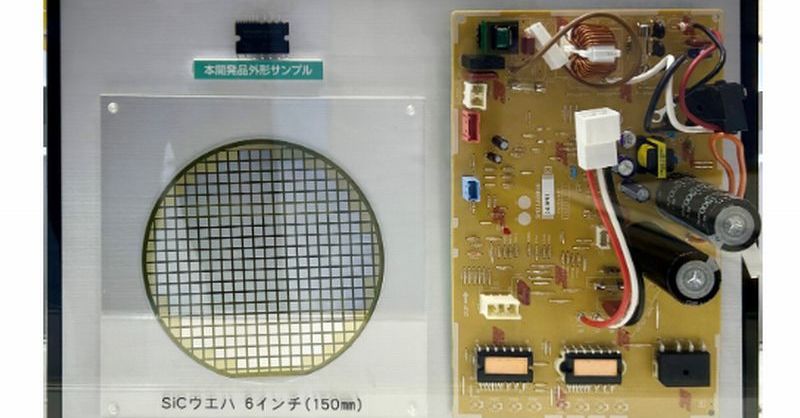New IPM with SiC: Slashing AC Energy Use
Revolutionizing Air Conditioning with Silicon Carbide Power Modules
The air conditioning industry is facing increasing pressure to reduce its environmental impact. Traditional AC units are notorious energy guzzlers, contributing significantly to global carbon emissions. However, a groundbreaking development promises to drastically change this: new intelligent power modules (IPMs) incorporating silicon carbide (SiC) technology. This innovative approach is poised to slash AC energy consumption, offering a significant leap forward in energy efficiency and sustainability.
What are SiC IPMs and How Do They Work?
Silicon carbide is a wide-bandgap semiconductor material offering superior performance compared to traditional silicon-based IGBTs (Insulated Gate Bipolar Transistors) used in most power electronics. SiC IPMs boast several key advantages leading to significantly improved energy efficiency in AC systems:
- Higher Switching Frequencies: SiC allows for much higher switching frequencies than silicon, resulting in smaller, lighter, and more efficient power converters. This translates directly to lower energy losses and reduced overall energy consumption.
- Lower Switching Losses: The inherent properties of SiC lead to dramatically reduced switching losses, a major source of inefficiency in traditional AC inverters. This contributes to greater energy savings and improved system reliability.
- Increased Power Density: SiC IPMs achieve higher power density, meaning more power can be packed into a smaller space. This is beneficial for both residential and industrial applications, leading to more compact and efficient AC units.
- Improved Thermal Management: Lower switching losses also mean less heat generated, simplifying thermal management and potentially extending the lifespan of the AC unit.
Beyond Efficiency: The Broader Impact
The adoption of SiC IPMs in AC systems extends beyond simple energy savings. This technological advancement offers several crucial benefits:
- Reduced Carbon Footprint: Lower energy consumption translates directly into a smaller carbon footprint, contributing to global efforts to mitigate climate change.
- Cost Savings: While the initial investment might be higher, the long-term cost savings from reduced energy consumption quickly outweigh the upfront expense.
- Enhanced Reliability: The improved thermal management and lower switching losses associated with SiC IPMs contribute to increased system reliability and a longer lifespan for AC units.
- Smaller and Lighter Designs: The increased power density allows for more compact and lighter AC systems, making them easier to install and transport.
Market Trends and Future Outlook
The market for SiC-based power devices is experiencing explosive growth, driven by the increasing demand for energy-efficient solutions across various industries. Several major manufacturers are investing heavily in SiC technology, making these advanced IPMs more accessible and affordable. We can expect to see wider adoption of SiC IPMs in various AC applications in the near future, including:
- Residential Air Conditioners: Making energy-efficient cooling solutions accessible to homeowners.
- Commercial HVAC Systems: Reducing energy consumption in large buildings and commercial spaces.
- Industrial Process Cooling: Optimizing energy use in industrial applications requiring precise temperature control.
Conclusion: A Cooler, Greener Future
The introduction of SiC IPMs represents a significant advancement in air conditioning technology. By dramatically improving energy efficiency and reducing environmental impact, this innovation paves the way for a cooler and greener future. As the technology matures and becomes more widely adopted, we can anticipate even greater reductions in energy consumption and a positive impact on global sustainability efforts. Stay tuned for further advancements in this exciting field!
Keywords: SiC IPM, Silicon Carbide, Intelligent Power Module, Air Conditioning, Energy Efficiency, HVAC, Sustainability, Power Electronics, Energy Savings, Green Technology, Climate Change, AC Inverter, IGBT
Related Articles: (Links to relevant articles on your website or other reputable sources)
Call to Action: Learn more about the latest advancements in energy-efficient cooling solutions by visiting [link to a relevant resource].
